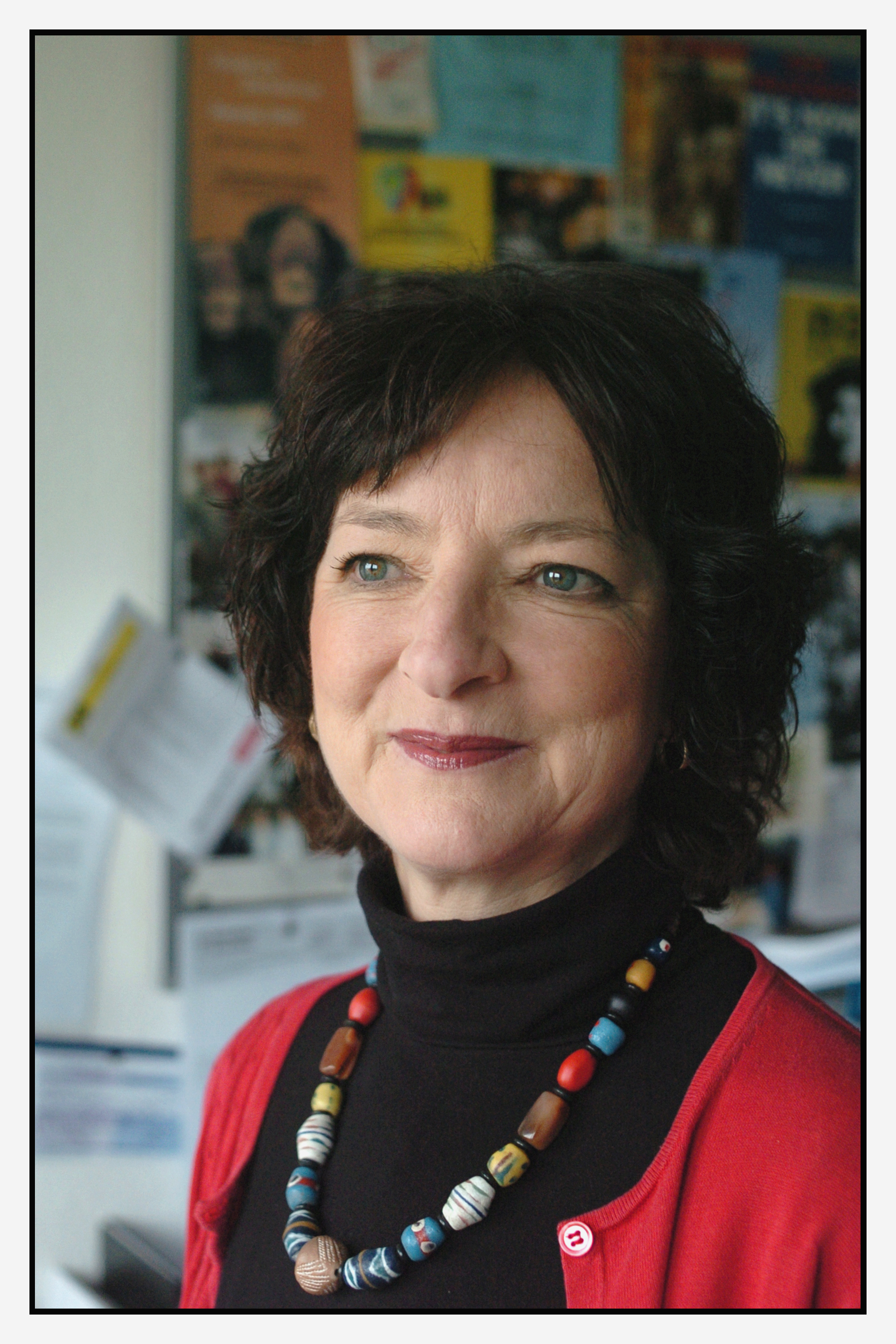2024 INDUCTEE Catherine Hankins, MD PhD
October 8, 1949
(Edmonton, Alberta)
MD, University of Calgary (1976)
PhD, University of Amsterdam (2014)
2018: Canadian Woman in Global Health
2013: Member, Order of Canada
See All AwardsAwards & Honours:
2018: Canadian Woman in Global Health
2013: Member, Order of Canada
2011: Honorary Professor of the London School of Hygiene and Tropical Medicine, UK
2003: Mark Wainberg Honorary Plenary, Canadian Association for HIV Research
1994: YWCA, Montreal Woman of the Year (Health)
1994: National Rolleston Award for Harm Reduction
1993: Distinguished Alumni Award, University of Calgary
1986: Corporation professionnelle des médecins du Québec, Santé communautaire
1981: Fellow, Royal College of Physicians of Canada
1978: Certificant, Canadian College of Family Practice
1976: Licentiate of Medical Council of Canada

Advanced community medicine with fair research practices and a focus on those in need

A dedicated advocate for global health and health equity
Preventing high-risk infectious diseases and protecting at-risk populations are just two of the critical public health aims advanced by Catherine Hankins. Dr. Hankins’ illustrious 40-year career spans many diverse roles and achievements united by her commitment to these goals: providing clinical care as a family doctor, leading novel research in response to global emergencies and mobilizing this research to inform public health policy. An early advocate of focusing on women with HIV in Canada, Dr. Hankins established the first national cohort of women living with HIV in 1993. She also pioneered research on HIV in correctional settings that led to health-benefiting policies in Canada’s penitentiaries. As the global toll of HIV/AIDS grew, Dr. Hankins used modelling to inform HIV prevention while serving with the United Nations as the first Chief Scientific Advisor to the Joint United Programme on HIV/AIDS (UNAIDS). With the advent of another pandemic, she co-chaired Canada’s COVID-19 Immunity Task Force, where she catalyzed household-based testing of immunity and research among at-risk populations. Dr. Hankins’ inspiring contributions to community medicine demonstrate how research can be harnessed to improve health and health equity around the world.
Key Facts
Led frontier research to inform public health policy in response to the global emergencies of HIV/AIDS and COVID-19
Worked on the front lines of public health for the first 20 years of her career, demonstrating outstanding leadership in various positions across Canada.
Served as co-chair of Canada’s COVID-19 Immunity Task Force (CITF)
Conducted groundbreaking research on HIV in correctional settings in Canada
Published more than 250 peer-reviewed articles and held numerous active leadership roles aimed at improving public health
Professional timeline
Impact on lives today
Keenly interested in scientific capacity development and advancing women in global health and science, Catherine Hankins has been integral to the development of guidelines and best practices for community engagement in the co-design and co-management of research conduct, and has contributed to shaping new norms in global health research to advance women in science. For over thirty years she has facilitated research capacity strengthening in low- and middle-income countries. A tireless advocate for health equity, she has made a major difference in Canada through lifelong contributions in research, particularly among women, correctional inmates, people who inject drugs, and others, to inform effective public health policy and programmes. A relentless communicator, she has taught knowledge translation at gradual level to the next generation of public health practitioners and has conducted hundreds of media interviews to convey emerging scientific knowledge clearly to the general public.

2024
-

Canada’s COVID-19 Immunity Task Force (CITF) is Co-Chaired by Dr. Hankins
Health Policy, Women in Medicine, Improving health and patient outcomes, Infectious Disease, Allergy & ImmunityCate was instrumental in the overall setup and governance of the CITF, guiding the emergency mobilization of research across Canada to understand COVID-19 infection.
-

Named Chair of the Scientific Advisory Board of the European and Developing Countries Clinical Trials Partnership Programme (EDCTP)
Building our health organizations and systems, Women in Medicine, Public Health, Health Promotion & AdvocacyDr. Hankins served for 6 years during which she was the Scientific Programme Chair for the Tenth EDCTP Forum (2021) in Maputo Mozambique.
-

Appointed Professor in the Department of Epidemiology, Biostatistics, and Occupational Health, McGill University
Dr. Hankins participated in setting up the new School of Population and Global Health at McGill, lead teaching on knowledge translation for effective public health leadership.
-
Completed her PhD at Faculty of Medicine, University of Amsterdam
studying how mathematical modelling can be used to improve HIV prevention policy and programming.
-

Appointed Deputy Director Science of Amsterdam Institute for Global Health and Development (AIGHD)
Women in Medicine, Leadership in Organizational DevelopmentCate assumed the role of Scientific Chair for six annual INTEREST conferences on HIV Treatment, Pathogenesis, and Prevention Research in Resource-Limited Settings. Also appointed as the Scientific Co-Chair for the Eastern Europe & Central Asia INTERACT.
-
Appointed Chair, Scientific Advisory Group (SAG), USA National Institutes of Health, HIV Prevention Trials Network
-
Appointed Deputy Director of Science at the Amsterdam Institute for Global Health and Development
-
Named Chair, Scientific Advisory Board, Centre for AIDS Programme of Research in South Africa (CAPRISA), Durban, 2009- 2017
-
Co-led the development of the UNAIDS/AVAC Good Participatory Practice (GPP) Guidelines
Following confrontations in 2004 between activists and political leaders in Cambodia and Cameroon over research conduct, she convened stakeholders to discuss meaningful community engagement in research leading to these biomedical HIV prevention trials
-

Became the first Chief Scientific Adviser to UNAIDS (The United Nations Joint Programme on HIV/AIDS)
Public Health, Health Promotion & Advocacy, Women in Medicine -
Chaired the National Task Force on HIV-AIDS and Injection Drug Use
Health PolicyThe task force put forward the first recommendations for decriminalization of personal use amounts of drugs and the need to expand syringe programs and methadone substitution.
-
Canada’ first and only national HIV clinical cohort study is established
Women in Medicine, Infectious Disease, Allergy & Immunity, Evidence-based Medicine & Clinical Trials'The Canadian HIV Women’s Study' organized by Dr. Hankins ran for more than a decade
-
Cate Hankins led pioneering research on HIV in correctional settings in Canada
Health Policy, Evidence-based Medicine & Clinical TrialsThis research culminated in the first federally and provincially funded needle-syringe program and the policy to place condoms in Canada’s penitentiaries.
-

Dr. Hankins appointed Director, Montreal Regional STD Control Program
Women in Medicine, Health Policy, Leadership in Organizational Development, Infectious Disease, Allergy & ImmunityAlso appointed as Assistant Professor at McGill. Served as Medical epidemiologist, Montreal Regional Public Health Department (1989 – 2002) and Médecin conseil, Institut national de la santé publique du Québec (2002)
-
Dr. Hankins is appointed to Canada’s National Advisory Committee on AIDS
Infectious Disease, Allergy & Immunity, Public Health, Health Promotion & AdvocacyShe served for eight years chairing several initiatives including the Epidemiology Sub-Committee and HIV & Women Working Group.
-

Earned an MSc Community Health in Developing Countries (cum laude) from London School of Hygiene and Tropical Medicine
-
Worked as a physician with Northern Medical Services in Inuvik, N.W.T.
-

Graduated with ‘The Beavers’ class of 1976 from the University of Calgary Faculty of Medicine
Class motto: ‘We give a damn’
1976
Dr. Hankins has made stellar contributions to the prevention of high-risk infectious diseases and the protection of those at greatest risk of dire outcomes.

